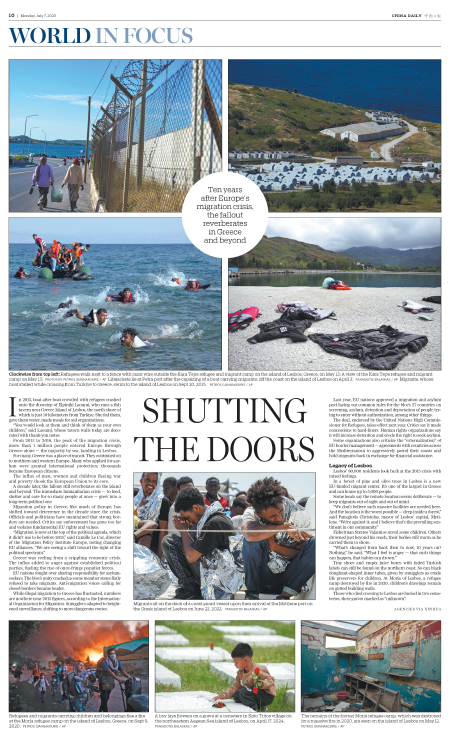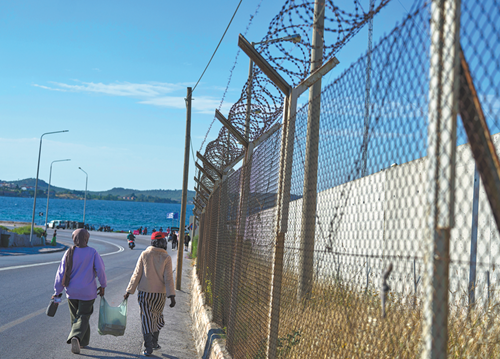
Refugees walk next to a fence with razor wire outside the Kara Tepe refugee and migrant camp on the island of Lesbos, Greece, on May 13
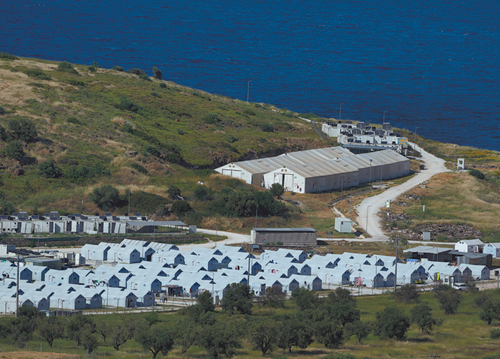
A view of the Kara Tepe refugee and migrant camp on May 13
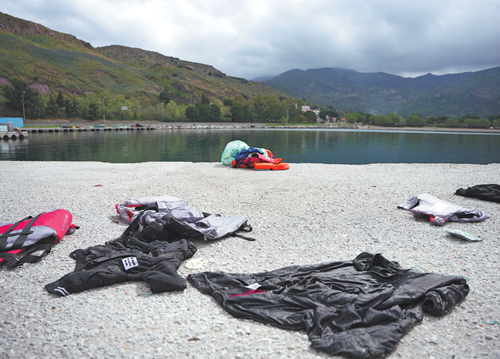
Lifejackets lie at Petra port after the capsizing of a boat carrying migrants, off the coast on the island of Lesbos on April 3
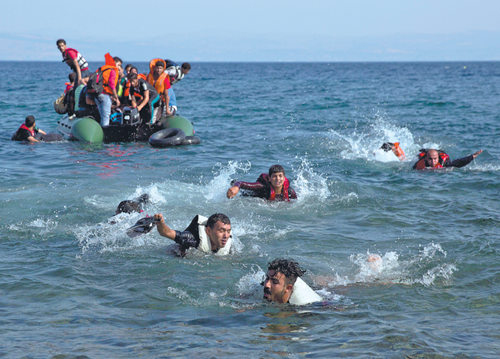
Migrants, whose boat stalled while crossing from Turkiye to Greece, swim to the island of Lesbos on Sept 20, 2015.
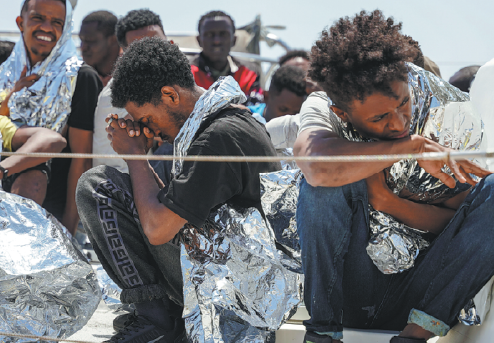
Migrants sit on the deck of a coast guard vessel upon their arrival at the Mytilene port on the Greek island of Lesbos on June 22, 2022.
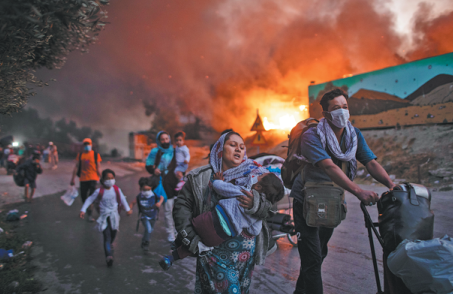
Refugees and migrants carrying children and belongings flee a fire at the Moria refugee camp on the island of Lesbos, Greece, on Sept 9, 2020.
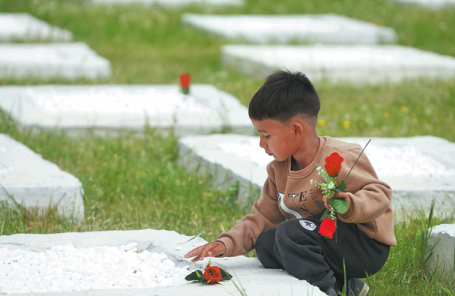
A boy lays flowers on a grave at a cemetery in Kato Tritos village on the northeastern Aegean Sea island of Lesbos, on April 17, 2024.
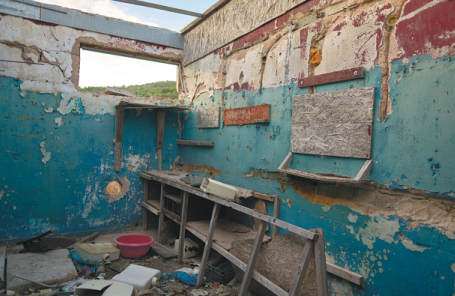
The remains of the former Moria refugee camp, which was destroyed by a massive fire in 2020, are seen on the island of Lesbos on May 12.
In 2015, boat after boat crowded with refugees crashed onto the doorstep of Elpiniki Laoumi, who runs a fish tavern near Greece Island of Lesbos, the north shore of which is just 10 kilometers from Turkiye. She fed them, gave them water, made meals for aid organizations.
"You would look at them and think of them as your own children," said Laoumi, whose tavern walls today are decorated with thank-you notes.
From 2015 to 2016, the peak of the migration crisis, more than 1 million people entered Europe through Greece alone — the majority by sea, landing in Lesbos.
For many, Greece was a place of transit. They continued on to northern and western Europe. Many who applied for asylum were granted international protection; thousands became European citizens.
The influx of men, women and children fleeing war and poverty shook the European Union to its core.
A decade later, the fallout still reverberates on the island and beyond. The immediate humanitarian crisis — to feed, shelter and care for so many people at once — grew into a long-term political one.
Migration policy in Greece, like much of Europe, has shifted toward deterrence in the decade since the crisis. Officials and politicians have maintained that strong borders are needed. Critics say enforcement has gone too far and violates fundamental EU rights and values.
"Migration is now at the top of the political agenda, which it didn't use to be before 2015," said Camille Le Coz, director of the Migration Policy Institute Europe, noting changing EU alliances. "We are seeing a shift toward the right of the political spectrum."
Greece was reeling from a crippling economic crisis. The influx added to anger against established political parties, fueling the rise of once-fringe populist forces.
EU nations fought over sharing responsibility for asylum-seekers. The bloc's unity cracked as some member states flatly refused to take migrants. Anti-migration voices calling for closed borders became louder.
While illegal migration to Greece has fluctuated, numbers are nowhere near 2015 figures, according to the International Organization for Migration. Smugglers adapted to heightened surveillance, shifting to more dangerous routes.
Last year, EU nations approved a migration and asylum pact laying out common rules for the bloc's 27 countries on screening, asylum, detention and deportation of people trying to enter without authorization, among other things.
The deal, endorsed by the United Nations High Commissioner for Refugees, takes effect next year. Critics say it made concessions to hard-liners. Human rights organizations say it will increase detention and erode the right to seek asylum.
Some organizations also criticize the "externalization" of EU border management — agreements with countries across the Mediterranean to aggressively patrol their coasts and hold migrants back in exchange for financial assistance.
Legacy of Lesbos
Lesbos' 80,000 residents look back at the 2015 crisis with mixed feelings.
In a forest of pine and olive trees in Lesbos is a new EU-funded migrant center. It's one of the largest in Greece and can house up to 5,000 people.
Some locals say the remote location seems deliberate — to keep migrants out of sight and out of mind.
"We don't believe such massive facilities are needed here. And the location is the worst possible — deep inside a forest," said Panagiotis Christofas, mayor of Lesbos' capital, Mytilene. "We're against it, and I believe that's the prevailing sentiment in our community."
Fisherman Stratos Valamios saved some children. Others drowned just beyond his reach, their bodies still warm as he carried them to shore.
"What's changed from back then to now, 10 years on? Nothing," he said. "What I feel is anger — that such things can happen, that babies can drown."
Tiny shoes and empty juice boxes with faded Turkish labels can still be found on the northern coast. So can black doughnut-shaped inner tubes, given by smugglers as crude life preservers for children. At Moria of Lesbos, a refugee camp destroyed by fire in 2020, children's drawings remain on gutted building walls.
Those who died crossing to Lesbos are buried in two cemeteries, their graves marked as "unknown".
